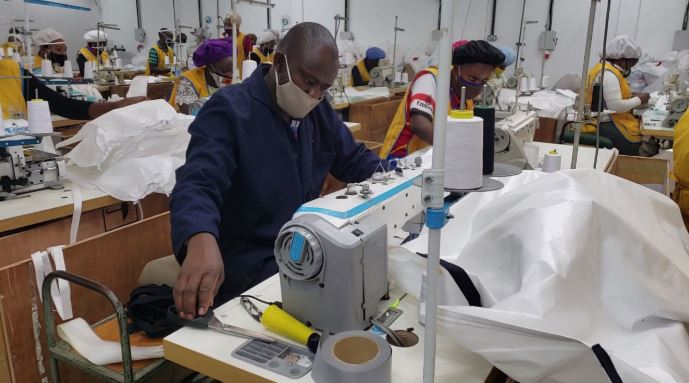
Amidst the hum of sewing machines in a large assembly-line setup just off Enterprise Road in Nairobi’s Industrial area sits Jeremiah Masese Rafiki. It is easy to miss the dark, stocky 34-year-old Kisii-born tailor since everyone here is in a yellow dust coat. It is about midday and all workers are keen on clearing their work spaces of any pending jobs ahead of the lunch break.
Jeremiah initially thought he would go through life, tailoring ordinary clothing, and that sewing industrial gear like overalls would be the most life would ask of him. But life has a way of twisting and adjusting people, businesses and careers.